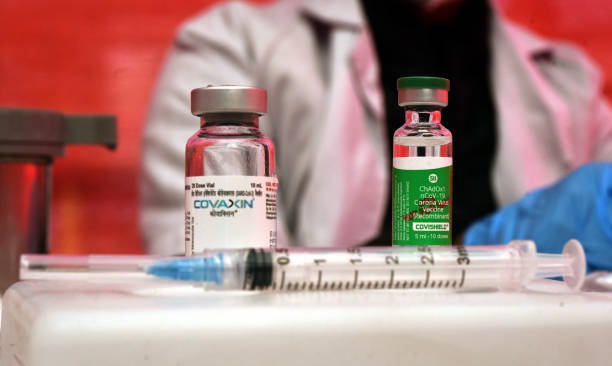The researchers enrolled 691 participants in the 18-45 age group across four sites in urban and rural Bengaluru and Pune between June 2021 and January 2022.
According to a multi-center study, Covishield recipients have higher neutralising antibody responses against the SARS-COV-2 virus and its variants of concern (VoC) than those who received the locally produced Covaxin.
The unpublished study, which was published on the preprint server MedRxiv on Friday, also discovered that when compared to the pre-vaccination baseline, both vaccines elicited statistically significant antibody levels in both seronegative and seropositive individuals, as well as those who had recovered from Covid-19 infection.
The researchers enrolled 691 participants in the 18-45 age group across four sites in urban and rural Bengaluru and Pune between June 2021 and January 2022.
Participants were given either two Covaxin doses 28 days apart or two Covishield doses three months apart.
In early 2022, the Omicron wave overlapped with the second dose of vaccine in two locations and with both doses in one.
Participants were sampled at six different times for antibody analysis and four different times for cellular analysis.
The researchers discovered that when compared to the pre-vaccination baseline, both vaccines elicited statistically significant antibody levels in both seronegative and seropositive individuals.
Covishield elicited greater magnitude and breadth of immune responses than Covaxin in both seronegative and seropositive individuals, across cohorts representing the majority of the vaccinated Indian population’s pre-vaccination immune history.
Immunologist Vineeta Bal observed a difference in response to Covid vaccines in young adults who have previously been infected with SARS-CoV-2 and recovered (seropositives) versus those who have not been infected.
“In seronegatives, two doses of Covishield lead to higher magnitude of antibody levels in a higher proportion of vaccine recipients as compared to Covaxin recipients,” Bal, one of the study’s authors from the Indian Institute of Science Education and Research (IISER), Pune, told PTI.
“In terms of waning immune response over time, Covishield vaccinated individuals retain antibodies in their blood for a longer period of time in a larger proportion of individuals,” she explained.
The study does not specifically look for or document COVID-19 protection in the recipients.
Prior studies comparing Covishield and Covaxin focused solely on antibody responses, particularly in the health care worker population who had been immunised prior to the Delta wave.
However, there is limited data on the cellular immune responses elicited by these vaccines, and there are no direct head-to-head comparisons or stratification by pre-vaccination serostatus.
Vaccination following SARS-CoV-2 Delta or Omicron exposure is likely to affect the quality, quantity, and duration of immune responses.
When pan-coronavirus or sarbecovirus vaccines become available, it will be critical to consider the majority of the vaccinated Indian population’s pre-vaccination immune history when determining future COVID-19 vaccination policy.
“Some unpublished work from other Indian investigators appears to suggest that heterologous boosting, i.e. Covaxin in Covishield recipients and vice versa, works better than homologous boosting,” Bal added.







